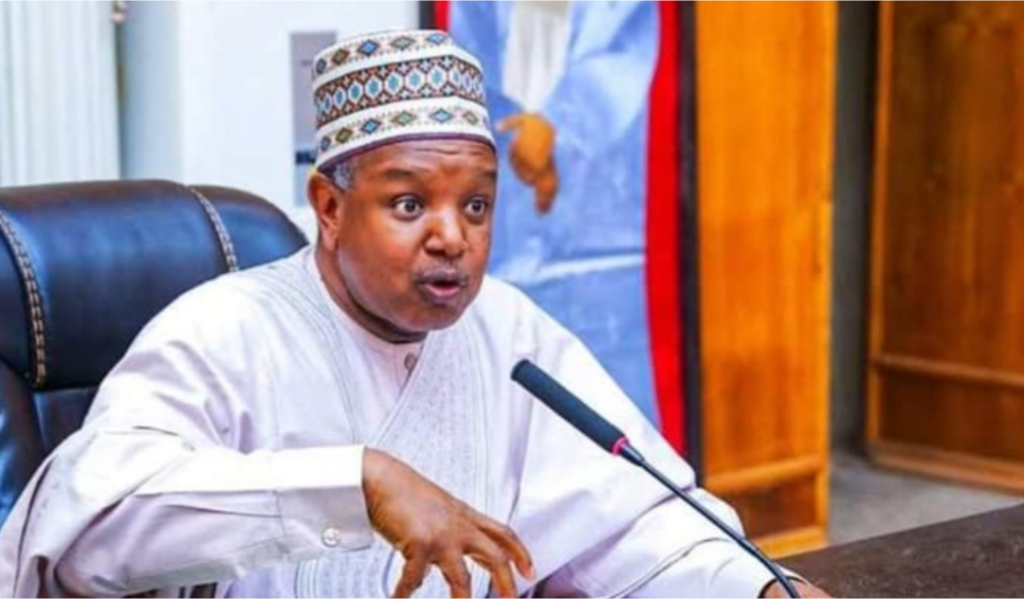…endorses NASENI’s solar irrigation pumps
—Seeks Tinubu’s approval for mass production
—It’s a proof that Nigerian ingenuity can compete with the world – Shettima
By Johnbosco Agbakwuru
ABUJA — IN a determined effort to boost food security in Nigeria, the National Economic Council, NEC, on Thursday endorsed solar-powered irrigation pumps produced by the National Agency for Science and Engineering Infrastructure, NASENI, for national rollout ahead of the 2025 dry season farming.
The NASENI solar irrigation pump, produced to replace the petrol-powered pump, is aimed at reinforcing the nation’s food security strategy, as it is expected to increase agricultural productivity, lower operational cost, higher incomes and improve livelihoods.
At its 152nd meeting held at the Presidential Villa, Abuja, NEC endorsed the use of the solar irrigation pump and resolved to adequately notify President Bola Ahmed Tinubu for his approval.
In anticipation of the President’s approval and the need to provide funding for NASENI, the Council also mandated the Minister of Budget and Economic Planning, Senator Atiku Bagudu, to work out modalities of funding to enable NASENI to mass produce the solar irrigation pumps and distribute in time for the 2025 dry season.
Chairman of the Council, Vice President Kashim Shettima, who presided over the meeting, said the scaled-up solar irrigation pumps is an indication that Nigerians can compete at the global level with their creativity.
“We must also face the challenge of innovation in agriculture. NASENI’s scaled-up solar irrigation pumps are ready for national rollout ahead of the 2025 dry season. These pumps replace expensive petrol-powered systems, lower farmers’ costs, expand dry-season cultivation, and even provide backup power for households.
“Their advanced features, including GPS tracking, mobile app dashboards, usage monitoring, and pay-as-you-go integration, prove that Nigerian ingenuity can compete with the world,” he stated.
Shettima said the innovation by NASENI “will not only boost food security but also unlock carbon credit opportunities” for farmers across the country.
The Vice President hinted at other efforts by the Tinubu administration to ensure food security, saying recently, “250,000 farmers have been insured across eight states, the 30 percent Value Addition Bill is advancing, and the ₦250 billion Bank of Agriculture facility is being activated to reach smallholders.”
Briefing State House correspondents, the governor of Delta State, Rt. Hon. Sheriff Oborevwori gave update on account balance as at 17th September, 2025.
According to him, the Excess Crude Account was $ 535,823.39, the Stabilization Account was N83,495,784,133.24 , while the Natural Resources Account stood at N125,818,396,257.41
The Minister of Budget and Economic Planning, Senator Atiku Bagudu, said the Chief Executive Officer of the Nigerian Economic Summit Group, NESG, briefed NEC on the forthcoming of the 31st Nigerian Economic Summit.
The Borno State Governor, Prof. Babagana Zulum said the National Security Adviser, NSA, Mallam Nuhu Ribadu, briefed on the Anticipatory Action Framework for Reverine Flooding in Nigeria.
The governor said the framework outlined a proactive strategy to reduce the humanitarian and economic impacts of riverine flooding through early warning, targeted preparedness, and coordinated response.
He said the objectives were to protect vulnerable households, especially in 13 high-risk states, enable timely and dignified interventions before flooding peaks,
institutionalize anticipatory action across ministries, departments and agencies. MDAs, and to focus on equity, ensuring no community is left behind.
The anticipatory action plan will be to prioritize the use of multipurpose cash assistance, with ₦24 billion earmarked for it, to support purpose.where necessary, evacuation sites and provide essential common services such as early warning systems, child protection, and gender-based violence prevention.
NEC recommended that state governors should step down risk communication to vulnerable communities via state channels such as state broadcast, radio, town halls and strengthen SEMAs with funding, equipment, and training to lead effective responses.
All stakeholders were also told to empower Local Emergency Management Committees, LEMCs, to enhance community safety and resilience.
The Jigawa state governor, Umar Namadi, said he presented a memo on monthly cost of production survey and impact of energy cost on food production.
He explained that the purpose was to share important information regarding the constraints affecting agricultural production and potential they have in exacerbating the fragile food security situation the federal government has tried to resolve for over two years.
It was recommended that the government should give equal emphasis to optimizing fertilizer cost, perhaps through the prioritization of the mandate given to the PFSCU to liberalize fertilizer regime.
Also to make available smaller handheld implements for small scale and subsistent farmers who are invariably too low in the ladder to immediately benefit from the tractor programme.
The post NEC moves to boost food security appeared first on Vanguard News.

